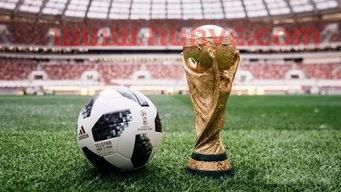大家好呀!今天我们要聊点“硬核”的——中国乒乓球!相信很多小伙伴都知道,这项运动在中国几乎就是神一样的存在,简直是“国球中的战斗机”。不过,咱们今天不是只讲中文,而是用英语带你领略中国乒乓球的魅力!准备好了吗?Let’s go!
Now, let’s talk about some superstar names that make fans scream, “Wow!”—like Ma Long, Ding Ning, and Zhang Jike. These legends are basically China’s “table tennis Avengers,” swooping in with lightning-fast reflexes and crazy spins. Ma Long, often nicknamed “The Dragon,” is famous for his rock-solid technique and an iron will that could probably bend steel. Ding Ning, the “Queen of Spin,” is unbeatable when it comes to creating unbelievable curve balls. When these players hit the table, it’s like watching an intense action movie—each shot packed with suspense and drama.
But wait, how does one become a ping pong pro in China? Easy peasy! Start early—that’s the golden rule. Many kids begin to learn at age five or six. Their parents enroll them in local sports schools, where coaches are more intense than a caffeine-fueled chess master. Practice makes perfect, right? Hours upon hours of shadow swings, drills, and point games—sometimes it feels like a martial arts movie, but with paddles instead of swords. To train like a pro, athletes endure a rigorous routine: warm-up, serve, rally, repeat. It’s almost like a ping pong version of “The Hunger Games”—you gotta be fast, cunning, and ready to outsmart your opponent.
Now, let’s not forget China’s secret weapon—its systematic talent pipeline. Schools in China have a special program called “Table Tennis Factory,” where they scout the best little monsters from the playgrounds. Once spotted, these tiny ping pong ninjas get rigorous training, diet plans, and mental coaching. The goal? To produce the next world champion. And boy, does it work! The Chinese team dominates World Championships, Olympics, and pretty much every table they set their paddles on. It’s as if they have a ping pong mojo—no one can beat them easily.
Speaking of Olympics, China always holds its breath when the table tennis matches roll around. Every time, the Chinese team is the favorite, with fans praying and chant-chant-chanting like they’re at a concert. The matches are so fierce that even grandma in her slippers is glued to the TV, shouting “Come on, China!” Meanwhile, opponents tremble like leaves in a typhoon. The Chinese players’ skills are so sharp that they can spin a ball so fast it’s almost invisible. That’s some superhero level stuff right there! The ripple effects? Ping pong became a national obsession, and Chinese people proudly attach their flag to every paddles they own, claiming it’s their “secret sauce” to victory.
Are you wondering what makes the Chinese style so special? Well, it’s a perfect mix of traditional techniques and innovative tactics. Chinese players excel in fast-paced offense with powerful forehands, combined with tactical serve game that’s harder to read than a fortune cookie. Plus, they’re masters of mental toughness—no matter how intense the match, they keep calm and carry on, like a Zen monk with a paddle. It’s like watching a chess match but with more sweat and good old fashioned smack talk, all in good fun, of course.
Let’s talk about training venues—think of them as the Disneyland of ping pong. Massive sports centers filled with rows of high-tech tables, coaches screaming advice like “Keep your eye on the ball!” and athletes sweating bullets. There’s even a saying: “If you can win in China, you can win anywhere.” Trust me, the scene is so lively that it makes a buzzing beehive look like a peaceful Zen garden. And after hours of sweating and smashing, players celebrate with “biao zhun,” the Chinese word for “my paddle and I are tight.”
Now, you might wonder—what about the international scene? China’s rivals are tough, but let’s be honest—no one can quite match China’s consistency and depth. European and Japanese players are catching up, but the Chinese team still rules with an iron paddle. They set trends—like the famous “reverse penhold grip” or “brush loop” —and everyone else copies them faster than a viral meme. Their strategy? Outlast and out-spin the competition. It’s like David versus Goliath, but here Goliath has a paddle and a killer smile.
Also, don’t forget the cultural impact. Ping pong is woven into the very fabric of Chinese life. From street games to college championships, it’s everywhere. Schools have “paddle shops” that sell custom paddles—some decorated with pandas, dragons, or even cartoon characters. It’s a big deal—ping pong players are considered not just athletes but ambassadors of Chinese spirit.
Finally, for anyone who’s ever wondered about that tiny white ball, know that it’s more than just a ball. It’s a messenger carrying China’s dreams, hustle, and a whole lot of spin. Whether it’s smashing a rally or doing a tricky chop, each shot is a stroke in this grand Chinese chess game called ping pong. So next time you see a ping pong match, think of it as a tiny battlefield where Chinese warriors fight with paddles and heart—literally, they’re winning every time!
And here’s a question for you: What do you call a ping pong player who’s also a magician? A paddle-ini... or maybe a spin-doctor?
肖战身边的三个胖子是谁肖战身边的三个胖子是他的助理、好友...
篮球直播在哪里可以看?想要查看自己的篮球直播的话,我建议...

卡塔尔世界杯分组了。北京时间2022年4月2日凌晨,2022卡塔尔世...

2O21卡塔尔世界杯亚洲区预选赛已进入4O强赛,日本,韩国,伊朗,澳...
世界上最富有的足球球员是谁?世界上最富的球员?现役...